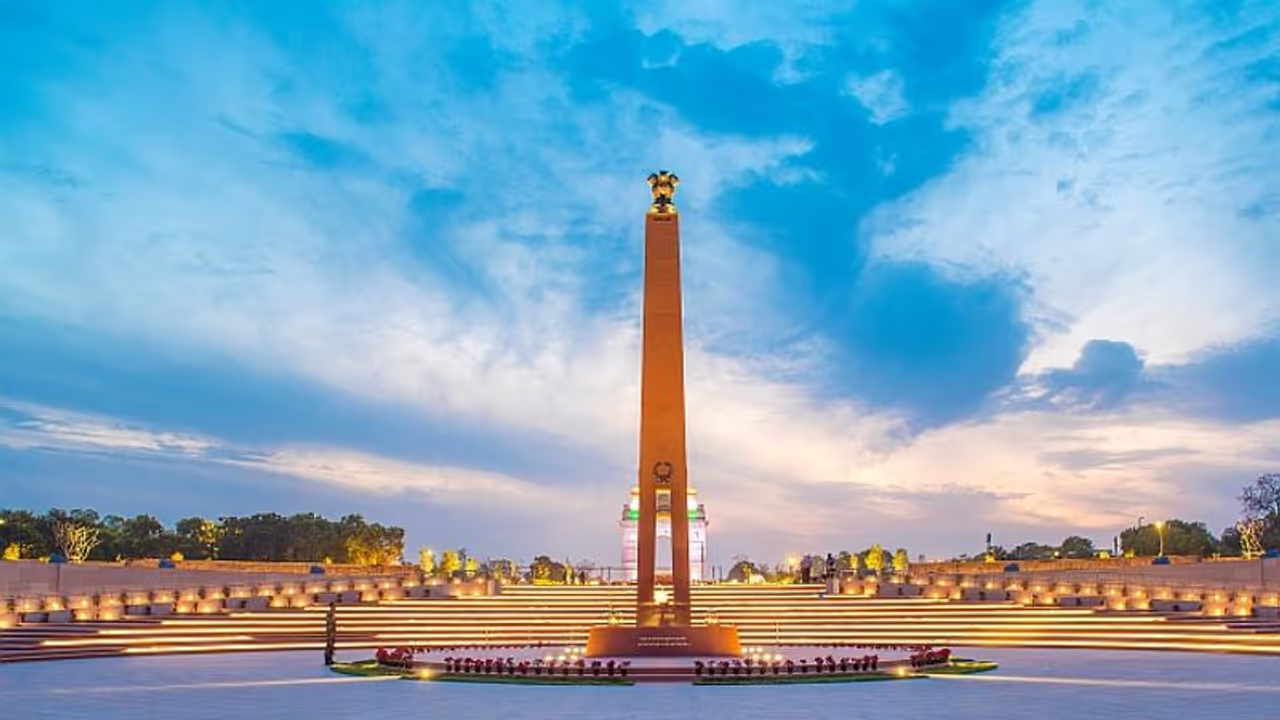Amidst the controversy erupted over the "merger" of the iconic Amar Jawan Jyoti with the flame of the National War Memorial, it is pertinent to note how the latter came into existence.
Amidst the controversy erupted over the "merger" of the iconic Amar Jawan Jyoti with the flame of the National War Memorial, it is pertinent to note how the latter came into existence.

In 2009, when the defence ministry was headed by senior Congress leader AK Antony, it was Rajya Sabha MP Rajeev Chandrasekhar who had written a letter to the former and his deputy Pallam Raju for the construction of the memorial. He had also stated that the continued lack of progress in finalising the National War Memorial was an embarrassment for the entire country.
In his letter dated August 4, 2009, the Rajya Sabha MP and senior BJP leader said, "The unending conflicts in the Indian subcontinent have resulted in casualties both civilian and military. The bravery and the sacrifices made by our uniformed personnel go largely unrecognized and unappreciated by the country."
He further stated. "ln contrast, governments and civil societies in other countries such as the USA, have undertaken several initiatives to recognize their Armed Forces through financial support, career counselling, housing assistance, recreational therapy programmes and complete and unstinted community support."
"At a time when our nation is under threat from within and out, from low-intensity conflicts and terrorist attacks, uniformed forces represent not just the form of protection and defence to our way of life and democracy but also represent the ideals on which this country was built -- of commitment to the nation and nation first," the letter read.
The now Union Minister had suggested to the Memorial be built on the banks of Yamuna in the national capital as the then United Progressive Alliance government was struggling in finding land for the same.
"I understand that there are issues with identifying land within the city for such a Memorial and this is the reason for the lack of progress thus so far," Chandrasekhar had mentioned, adding that "I, therefore, recommend that the government look at having this Memorial on the banks of the Yamuna and create a 50-60 acre Arlington War Memorial-type National Military Memorial park."
This would be similar to Rajghat and Shantivan complexes, he had said.
In fact, Chandrasekhar had also sent a design and layout of the Memorial for the government's consideration and also urged that he would remain available for any other assistance that "the ministry needed in getting the vital project of a National Military Memorial in Delhi off the ground."
In response, Antony had said that the matter has been examined and that the proposal for construction of the National War Memorial at India Gate complex has been under consideration for some time with the Ministry of Urban Development, which had to assign the land for the project.
It took nearly a decade since Chandrasekhar first sought it for the war memorial to finally be constructed. The construction of the National War Memorial was completed in January 2019. The memorial, which is spread over 40 acres of land, was constructed at a cost of over Rs 175 crore.
The memorial carried names of all Indian defence personnel who died fighting for the country in different operations from 1947 till the 2020 Galwan valley clash with Chinese troops.
Also Read: Veterans: 'Amar Jawan Jyoti an icon; India Gate may have colonial legacy, but soldiers were Indian'
Also Read: Amar Jawan Jyoti row: Veterans call 'merging' of flames 'true tribute to fallen heroes'
Also Read: Amar Jawan Jyoti row: Govt sources claim flame being merged; allege misinformation
